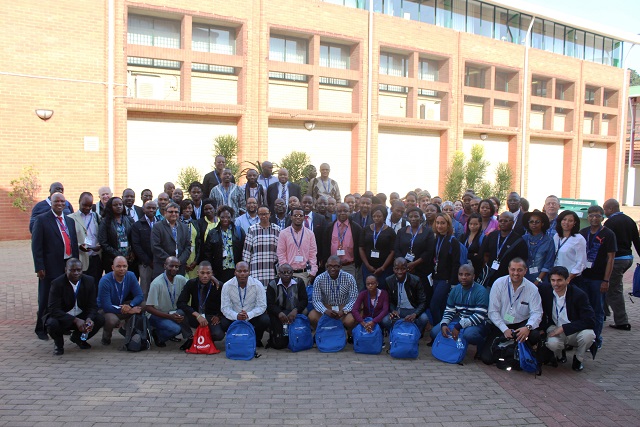Aiming to educate “architects of tomorrow’s internet” became a key point highlighted at the two-day Cisco Instructor Conference held in partnership with DUT at the University’s Ritson Campus last week (Tuesday, 26 May to Wednesday, 27 May, 2015).
The Cisco Networking Academy is an IT skills and career building programme for academic institutions and individuals worldwide. The Cisco Networking Academy Programme partners with governments, NGOs and educational institutions worldwide to afford students the opportunity to become ICT networking professionals, thereby increasing a country’s ICT skills base. The vision is aimed at providing access to quality education which will improve their position and contribute to the advancement of democratic values.
From secondary schools to universities to community organisations, more than 9000 institutions in more than 170 countries offer the Networking Academy (NetAcad) Curriculum which is the flagship programme of Cisco Corporate Social Responsibility (CSR) efforts.
With this in mind, the two day conference focused on key issues which entailed the NetAcad programme, its curriculum and roadmap updates as well as the new projects and concepts that were in place for the future. Welcoming delegates from various southern African countries, Cisco staff, Vodacom representatives, DUT staff, students and stakeholders was DUT based KwaZulu-Natal e-Skills Director and CoLab Director Colin Thakur who emphasised the importance of such conferences which gave more insight into the world of high-paced technology, IT programmes and the challenges and opportunities that were available at Cisco. Other points of discussion centred around issues of e-learning at DUT, the importance of networking, entrepreneurship, strategies and tools to enhance technological learning, making IT students more employable and creating more career opportunities for them.
Key speaker at the event, Vodacom’s Mthobeli Tengimfene who is the Executive head of CSI Projects, said that the shortage of IT skills was not a new phenomenon. “It is a matter that was discussed in a number of forums, even papers on the issue of IT skills shortage. South Africa has a shortage of IT skills which is hampering our economic growth. We have been overtaken by countries such as Kenya and Nigeria due to the limited outputs in the areas of science and technology, engineering and mathematics. In fact, there is a vital need to improve all basic education by improving skills of the teachers and technology in all our learning areas so that we can create a young, techno-savvy generation,” he added.
Cisco’s Technical Manager, Kevin Johnson, spoke about NetAcad as well as identifying and developing skills that were needed in a changing economy.
Besides various IT issues discussed, Thakur also spoke e-voting, the assessment of the use of e-voting and counting technologies by South Africa for the future.
On day two, speaker, Mohammed Jagot, Cisco System Engineer, spoke on Cisco’s data center and cloud strategy, adding that businesses today were experiencing disruptions from many sources and this led them to adapt the way they do business. “The impact of this is that IT has to be agile to respond to the business requirements and changes. At the same time, some units within the organisation will go out to the cloud to create applications to serve their requirements if they feel that IT is slow to respond. This creates a huge security risk for the organisation. The Cisco architecture provides a framework and strategy for businesses to not only adapt to the changing IT needs based on business requirements, but also circumvent possible security risks with the ability to automate an infrastructure which is based on business policy. In addition, the business can easily and seamlessly adopt the use of public cloud. The Cisco product portfolio is comprehensive and fulfills the infrastructure requirements that the architecture demands thus allowing automation, simplification and the adoption of the world of many clouds,” he said.
The two-day event culminated with an open feedback session on IT issues pertaining to cyber security and a discussion on how to prepare students to succeed in an increasingly connected economy.
– Waheeda Peters
Pictured: Delegates from various southern African countries, Cisco staff, Vodacom representatives, DUT staff, students and various stakeholders, at the two-day conference.


